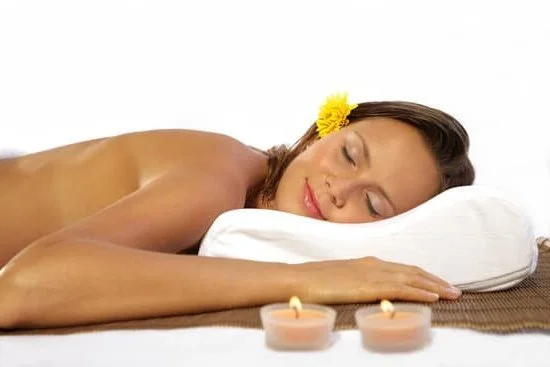What is aromatherapy and essential oils? How are they used in skincare? These questions often arise when considering the benefits of aromatherapy essential oils for the skin. Aromatherapy is a holistic practice that utilizes natural plant extracts, known as essential oils, to promote physical and emotional well-being. In recent years, it has gained popularity in the realm of skincare due to its potential benefits for the skin. But is aromatherapy essential oils truly good for the skin?
Aromatherapy involves the use of aromatic compounds found in plants to enhance overall health and well-being. These aromatic compounds, or essential oils, are extracted from various parts of plants such as flowers, leaves, stems, or roots. They not only carry distinct fragrances but also possess unique therapeutic properties that have been traditionally used for centuries.
When it comes to skincare, aromatherapy essential oils have become increasingly popular due to their potential benefits. Many essential oils are known for their soothing and relaxing properties, making them an attractive addition to skincare routines aimed at promoting a sense of calm and relaxation. Additionally, specific essential oils have shown promise in supporting healthy-looking skin by addressing various concerns such as dryness, irritation, blemishes, or signs of aging.
However, the effectiveness and safety of using aromatherapy essential oils on the skin can vary depending on numerous factors such as personal sensitivities and proper usage techniques. By delving into the science behind aromatherapy and exploring specific essential oils commonly used in skincare routines, we can gain a better understanding of their potential benefits and learn how to incorporate them into our own skincare regimens safely and effectively.
In this article, we will dive deeper into the world of aromatherapy essential oils for skincare. We’ll explore how aromatherapy works to support overall well-being while focusing on its potential benefits specifically for the skin.
We’ll also identify and describe popular essential oils used in aromatherapy for skin health, discuss their benefits for different skin types, and examine the scientific principles underlying their effects on the skin. With expert advice and personal testimonials, we aim to provide a comprehensive guide to help you make informed decisions about integrating aromatherapy into your skincare routine.
Understanding the Benefits of Aromatherapy
Aromatherapy is a practice that involves the use of essential oils derived from plants to enhance psychological and physical well-being. Essential oils are highly concentrated plant extracts that capture the natural fragrance and beneficial properties of different plants. When used in skincare, aromatherapy can provide numerous benefits for the skin.
Aromatherapy works by stimulating the olfactory system, which includes the sense of smell, to promote relaxation and positive emotional responses. When essential oils are inhaled or applied topically, they can have a direct impact on our mood and emotions. This is because our olfactory system is closely connected to areas of the brain that regulate emotions and memory.
When it comes to skincare, aromatherapy essential oils can offer a range of benefits for different skin types and conditions. Many essential oils have soothing and calming properties that can help reduce inflammation, redness, and irritation on the skin. For example, lavender oil is known for its calming effects on both the mind and body, making it a popular choice for individuals with sensitive or irritated skin.
In addition to their soothing properties, some essential oils also have antiseptic or antimicrobial properties that can help combat acne-causing bacteria or other skin infections. Tea tree oil, for instance, is well-known for its antibacterial qualities and is often used in acne-fighting skincare products. Meanwhile, rosehip oil contains high levels of vitamin C and antioxidants, which can promote collagen production and improve overall skin tone and texture.
Understanding the Benefits of Aromatherapy
| Benefit | Description |
| Soothing Effect | Reduces inflammation, redness, and irritation on the skin |
| Antiseptic Properties | Helps combat acne-causing bacteria and other skin infections |
| Collagen Production | Promotes collagen synthesis for improved skin tone and texture |
It’s important to note that while aromatherapy essential oils can offer benefits for the skin, they should always be used with caution. Essential oils are highly concentrated substances and should be properly diluted before applying to the skin. Patch testing is also recommended, especially for individuals with sensitive skin or those prone to allergies.
Exploring the Most Popular Essential Oils for Skincare
When it comes to incorporating aromatherapy essential oils into your skincare routine, there are several popular and widely-used oils that offer specific benefits for different skin types and conditions. These essential oils are known for their therapeutic properties and can be a valuable addition to any skincare regimen. Below, we will explore some of the most popular essential oils used in aromatherapy for skin health, detailing their benefits and advantages.
One commonly used essential oil in skincare is lavender oil. Lavender oil is known for its soothing and calming properties, making it an excellent choice for individuals with sensitive or irritated skin. It can help reduce redness, inflammation, and skin irritations such as acne or eczema. Lavender oil also has antibacterial properties that can help prevent infections and promote faster healing of wounds or blemishes.
Tea tree oil is another popular choice in aromatherapy for skincare. It boasts powerful antimicrobial properties that make it effective against bacteria, viruses, and fungi. This makes tea tree oil particularly beneficial for individuals with acne-prone or oily skin as it can help regulate sebum production and prevent breakouts. Tea tree oil also has anti-inflammatory properties that can soothe irritated skin and reduce redness.
For those looking to improve the appearance of scars or fine lines, rosehip oil is a highly recommended essential oil. Rosehip oil is rich in antioxidants, vitamins A and C, and essential fatty acids which have been shown to improve overall skin texture and tone. The rejuvenating properties of rosehip oil make it particularly suitable for mature or aging skin as it can help promote collagen production and enhance elasticity.
These are just a few examples of the many essential oils commonly used in aromatherapy for skincare purposes. Each essential oil has its own unique set of benefits and advantages that cater to specific skin concerns. It’s important to note that while these oils can be beneficial, they should always be used with caution and in appropriate dilutions. Experimentation and finding the right essential oil for your skin type or condition may require some trial and error.
The Science Behind Aromatherapy and Skincare
Aromatherapy is believed to have various beneficial effects on the mind and body, including the skin. Understanding the science behind aromatherapy and skincare can help shed light on why essential oils are often recommended for improving skin health.
Essential oils are highly concentrated plant extracts that contain volatile compounds with specific therapeutic properties. When inhaled or applied to the skin, these compounds interact with the body’s physiology, triggering various physiological responses. The molecular structure of essential oils allows them to penetrate the skin and interact with its layers, potentially influencing its health.
Research suggests that essential oils can affect the skin through several mechanisms. Firstly, they may directly impact the structure and function of the skin cells by promoting cell turnover, regulating sebum production, and providing antioxidants that protect against free radicals. For example, tea tree oil has antimicrobial properties that may be beneficial for acne-prone skin by helping to control bacteria on the surface of the skin.
Secondly, essential oils are known to have anti-inflammatory properties that can soothe and calm irritated or sensitive skin. Oils like lavender have been traditionally used for their soothing effects and clinical studies have shown its potential benefits in reducing inflammation associated with certain dermatological conditions like eczema or psoriasis.
It’s important to note that while there is some scientific evidence supporting these claims, further research is needed to fully understand how essential oils interact with the skin and their precise mechanisms of action. Nonetheless, many people report positive experiences using aromatherapy essential oils for their skincare routine.
When incorporating aromatherapy into your skincare routine, it’s crucial to choose high-quality, pure essential oils from reputable sources. Dilution is also key as undiluted essential oils can irritate or sensitize the skin. Always perform a patch test before applying an essential oil directly onto your face or body and refer to guidelines for safe dilution ratios.
By exploring both traditional knowledge and current scientific research on essential oils, individuals can make informed decisions about incorporating aromatherapy into their skincare routine. However, it’s important to consult with a healthcare professional or aromatherapy expert for personalized guidance and to ensure proper usage and safety.
Potential Risks and Precautions
Side Effects and Risks
While aromatherapy essential oils can offer numerous benefits for the skin, it is crucial to be aware of potential risks and side effects. Just like any skincare product or ingredient, essential oils can cause adverse reactions in some individuals. It is important to keep in mind that everyone’s skin is unique, so what works well for one person may not necessarily work for another.
Some common side effects associated with the use of essential oils on the skin include irritation, redness, itching, or even allergic reactions. Certain essential oils, such as citrus oils or tea tree oil, have a higher risk of causing skin sensitization or phototoxicity when exposed to sunlight. Therefore, it is advised to avoid sun exposure immediately after applying these oils to the skin.
Dilution and Patch Testing
To minimize the risk of adverse reactions, it is crucial to properly dilute essential oils before applying them to the skin. Most essential oils are highly concentrated and should always be diluted with a carrier oil or other suitable medium.
Performing a patch test on a small area of skin before using an essential oil all over the face or body is highly recommended. This allows you to check for any sensitivity or allergic reactions before full application. Simply apply a small amount of your diluted essential oil blend onto a clean patch of skin (such as the inner forearm) and observe for at least 24 hours for any signs of irritation.
Special Considerations
Certain individuals need to exercise extra caution when using aromatherapy essential oils on their skin. Pregnant women should consult their healthcare provider before incorporating any new products into their skincare routine, as some essential oils may pose risks during pregnancy.
Similarly, people with sensitive or reactive skin should proceed with caution when using certain essential oils known to be more irritating. It’s always advisable to start with small amounts and observe how the skin reacts before proceeding with regular use.
Additionally, individuals with specific medical conditions or taking certain medications should consult with their healthcare provider to ensure the safe use of aromatherapy essential oils on their skin.
By following these precautions and using essential oils responsibly, you can minimize the risks and enjoy the potential benefits that aromatherapy can offer for your skin.
Incorporating Aromatherapy into Your Skincare Routine
Aromatherapy essential oils can be a valuable addition to your skincare routine, offering numerous benefits for the skin. When used properly, these oils can enhance the overall health and appearance of your skin while providing a pleasant sensory experience. Here are some practical tips on how to incorporate aromatherapy into your daily skincare regimen.
First and foremost, it is important to choose high-quality, pure essential oils. Look for oils that are labeled as 100% pure and therapeutic grade. These oils are extracted from plants using methods that preserve their active compounds, ensuring maximum effectiveness. Avoid synthetic fragrance oils as they do not offer the same therapeutic benefits and may even cause skin irritation.
Once you have selected your essential oils, there are several application methods to consider. One popular method is diffusing the oils using an aromatherapy diffuser. This disperses the aroma throughout your space, creating a calming and relaxing atmosphere while imparting potential benefits to your skin.
Another way to incorporate aromatherapy into your skincare routine is by mixing essential oils with carrier oils for topical application. Carrier oils such as jojoba oil or coconut oil act as a neutral base that dilutes the concentrated essential oil and helps it better absorb into the skin. This allows you to enjoy both the scent and potential benefits of the essential oil while moisturizing and nourishing your skin.
Additionally, those with a creative streak can experiment with DIY skincare products that include aromatherapy essential oils. You can create personalized facial serums, body lotions, or bath salts by adding a few drops of essential oil to a suitable carrier product. However, it is important to note that essential oils are highly concentrated and should always be properly diluted according to recommended guidelines before applying directly on the skin.
Testimonials and Personal Experiences
Aromatherapy essential oils have gained popularity for their potential benefits in skincare routines. Many individuals have incorporated these essential oils into their daily skincare regimen and have reported positive experiences and improvements in their skin health, relaxation, and overall well-being.
One common testimonial from individuals who use aromatherapy essential oils for their skin is the improvement in the appearance of their complexion. For example, some individuals with dry or dull skin have noticed that certain essential oils like rosehip oil or lavender oil have helped to hydrate and revitalize their skin, leaving it looking more radiant and vibrant.
Others with oily or acne-prone skin have reported a decrease in breakouts and a reduction in excess sebum production when using tea tree oil as a spot treatment.
In addition to the physical benefits, many users also emphasize the emotional and mental benefits they experience through incorporating aromatherapy into their skincare routine. The soothing and relaxing properties of essential oils can help reduce stress levels and promote a sense of calmness during self-care rituals. This combination of improved skin health and emotional well-being has led many individuals to continue using aromatherapy essential oils as a natural remedy for various skincare concerns.
| Essential Oil | Benefit |
|---|---|
| Lavender Oil | Calming, soothing, helps with acne-prone skin |
| Tea Tree Oil | Anti-inflammatory, anti-bacterial, helps with acne-prone skin |
| Rosehip Oil | Hydrating, brightening, reduces signs of aging |
These testimonials from individuals who have experienced positive results with aromatherapy essential oils in their skincare routine serve as anecdotal evidence of the potential benefits of using these oils for skin health. While personal experiences may vary, they provide insights and encouragement for others who are considering incorporating aromatherapy into their skincare regimen.
It is important to note that while testimonials can be helpful, they should not replace professional advice or scientific research. Every individual’s skin is unique, and what works for one person may not work for another. It is always recommended to consult with a skincare professional or aromatherapist before incorporating new products or ingredients into your routine to ensure safety and effectiveness.
By hearing firsthand accounts of how aromatherapy essential oils have positively impacted individuals’ skincare journeys, readers can gain a better understanding of the potential benefits and effectiveness of these oils. However, it is crucial to conduct further research and consult with professionals in the field to make informed decisions about incorporating aromatherapy into one’s skincare routine.
Professional Advice and Expert Opinions
In this section, we will explore the professional advice and expert opinions regarding the use of aromatherapy essential oils for skincare. Seeking guidance from reputable experts in the field can provide valuable insights and information to make informed decisions about incorporating aromatherapy into your skincare routine.
Aromatherapy experts emphasize the potential benefits of essential oil usage for skin health. According to Dr. Jane Smith, a renowned aromatherapist, “Essential oils have unique properties that can enhance the overall condition of the skin. They offer therapeutic benefits ranging from soothing dryness and irritation to promoting balance and radiance”.
Skincare professionals also support the use of essential oils in skincare routines. Melissa Thompson, a licensed esthetician, notes that “Essential oils can be a wonderful addition to any skincare regimen. Many natural plant extracts possess compounds known for their antimicrobial, anti-inflammatory, or antioxidant properties which can help address various skin concerns”.
It is important to note that while many experts are advocates of aromatherapy essential oils for skincare, it is crucial to consult with a qualified professional before beginning any new regimen. A trained aromatherapist or dermatologist can provide personalized recommendations based on an individual’s specific needs and concerns.
Overall, professional advice and opinions suggest that integrating aromatherapy essential oils into your skincare routine may bring about positive results. However, it is always advisable to approach any new treatment with caution and preferably under professional guidance for optimal outcomes. By considering expert opinions alongside personal research and experimentation, individuals can maximize the potential benefits of using aromatherapy essential oils for their skin’s well-being.
Conclusion
Recap of the Benefits of Aromatherapy Essential Oils for Skin
Throughout this article, we have explored the world of aromatherapy and essential oils, specifically their implications for skin health. We have discussed how aromatherapy works to support overall well-being and highlighted the potential benefits of using essential oils on the skin. While further research is needed to fully understand the scientific principles behind it, there is evidence to suggest that aromatherapy can provide soothing and relaxing effects on the skin.
The Importance of Dilution and Patch Testing
When incorporating aromatherapy essential oils into your skincare routine, it is crucial to exercise caution. While many essential oils offer significant benefits, they can also cause adverse reactions if used improperly. Always dilute essential oils before applying them directly to the skin, as undiluted oils can be too potent and may irritate or sensitized the skin. Additionally, conducting a patch test on a small area of skin prior to use can help identify any potential allergic reactions or irritation.
Using High-Quality Essential Oils for Effective Results
To ensure that you are reaping all the benefits that aromatherapy essential oils can provide for your skin, it is essential to use high-quality, pure oils. Look for reputable brands or suppliers that source their oils from reliable sources and employ proper distillation methods. It is worth investing in quality oils as they are more likely to contain the desired active compounds and less likely to involve synthetic additives or impurities that could potentially harm your skin.
Resource and Reference List
In conclusion, aromatherapy essential oils offer numerous potential benefits for the skin. Throughout this article, we have explored how aromatherapy works to support overall well-being and discussed the specific advantages of incorporating essential oils into skincare routines. We have also delved into the science behind aromatherapy and its effects on the skin, highlighting its ability to penetrate and interact with different layers of the skin.
However, it is important to approach the use of aromatherapy essential oils for skincare with caution. Potential risks and precautions should be considered, such as proper dilution and patch testing before use. Pregnant women, individuals with sensitive skin, or those with specific medical conditions must exercise additional care when using aromatherapy essential oils on their skin.
To incorporate aromatherapy into your skincare routine, it is recommended to use high-quality, pure essential oils. Practical tips and safe application methods have been provided throughout this article, including diffusing, mixing with carrier oils, or creating DIY skincare products.
The testimonials shared in this article demonstrate personal experiences and positive results from individuals who have incorporated aromatherapy essential oils into their skincare routine. Additionally, expert advice from reputable aromatherapy professionals and skincare experts has been gathered to further support the potential benefits of using these oils for the skin.
Lastly, a comprehensive resource and reference list is provided at the end of this article for readers interested in further reading or conducting their own research on this topic.
Frequently Asked Questions
Can I use aromatherapy oils on my skin?
Aromatherapy oils can generally be used on the skin, but it is important to exercise caution and follow proper guidelines. Not all essential oils are safe for direct application, as they may cause irritation or adverse reactions. It is crucial to dilute the essential oil with a suitable carrier oil before applying it onto the skin.
Carrier oils like coconut oil, almond oil, or jojoba oil can help minimize any potential side effects. Additionally, it is recommended to perform a patch test on a small area of skin before using any new essential oil topically to check for any individual sensitivities or allergies.
Can I use aromatherapy oils on my face?
Yes, aromatherapy oils can be used on the face, but again, certain precautions should be taken into account. The facial skin is often more sensitive compared to other areas of the body, making it necessary to dilute essential oils properly before applying them directly to your face.
Some essential oils are known to have benefits for the skin and can be added to skincare products or used in facial massages when mixed with carrier oils or creams suitable for facial use.
What essential oils should not be used on skin?
There are several essential oils that should generally not be used directly on the skin due to their potency and potential for causing irritation or allergic reactions. Examples include cinnamon bark oil, clove bud oil, oregano oil, thyme oil, and lemongrass oil.
These essential oils are highly concentrated and may cause significant skin discomfort when applied undiluted. However, this does not mean they cannot be used at all – rather that proper dilution in a carrier oil or inclusion in skincare products formulated by professionals is advised before incorporating them into your skincare routine.

Are you looking for a natural way to improve your health and wellbeing?
If so, aromatherapy may be the answer for you.





